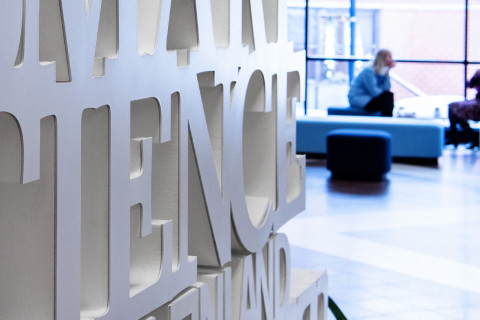The doctoral dissertation in the field of Cardiovascular Genomics will be examined at the Faculty of Health Sciences at Kuopio campus. The public examination will be streamed online.
What is the topic of your doctoral research? Why is it important to study the topic?
Cardiovascular diseases (CVDs) are a group of disorders of the heart and blood vessels, and represent the leading cause of mortality worldwide. The main cause of CVD is atherosclerosis, a chronic inflammatory condition characterized by the accumulation of fibrotic plaques in the vessel wall of arteries, causing them to narrow and thereby impairing arterial function. Within arterial walls, endothelial cells (ECs) act as the first barrier that senses changes in the vessels, and in atherosclerotic conditions ECs undergo complex gene expression changes, which are known as endothelial cell activation. The process of EC activation is an early hallmark of atherosclerosis development, and involves the interplay of many factors such as non-coding RNAs (ncRNAs). For many years, ncRNA molecules were considered as “junk” and non-functional. Nowadays, we know that these RNAs regulate diverse biological functions and their dysregulation is associated with many diseases. However, the exact biological functions of most of these RNAs needs to be determined. This doctoral thesis is focused in investigating the role of ncRNAs in the regulation of the gene expression of ECs, when they are exposed to conditions that can lead to atherosclerosis. The identification of ncRNAs and their role in disease progression will be crucial for the development of new therapeutic targets for the prevention, detection, and treatment of atherosclerosis.
What are the key findings or observations of your doctoral research?
This doctoral research uncovered key ncRNAs involved in gene expression regulation that governs endothelial cell dysfunction and atherosclerosis development. Importantly, as the disease progresses, several factors within the atherosclerotic plaque trigger the growth of new blood vessels, a process known as intraplaque angiogenesis. However, deficient maturation and fragility of these new blood vessels within the plaque, contribute to the plaque becoming unstable and potentially rupturing. Intraplaque angiogenesis is induced by expression of Vascular Endothelial Growth Factors (VEGFs), and has been envisaged as a potential therapeutic target. In this context, this doctoral thesis discovered new types of ncRNAs that play a role in controlling the VEGF pathway. Understanding how these ncRNAs interact with VEGFs could potentially lead to new treatments that help to control blood vessel growth.
How can the results of your doctoral research be utilised in practice?
The results of this doctoral thesis provide a deeper insight of how endothelial cells react to atherosclerosis promoting conditions, identifying molecular factors involved in both the formation of new blood vessels and the development of atherosclerosis. This knowledge is vital for devising novel therapeutic strategies in the future, which might be directed to target ncRNAs.
What are the key research methods and materials used in your doctoral research?
In this doctoral research, human endothelial cells subjected to different atherosclerosis-promoting stimuli were used as an in vitro model mimicking atherosclerotic conditions in the vessel wall. Several advanced next-generation sequencing (NGS) techniques were combined to identify various types of ncRNAs. Moreover, a wide range of different molecular biology techniques were employed to manipulate the levels of key ncRNAs and to study their functional relevance and impact in the regulation of EC gene expression.
The doctoral dissertation Vanesa Tomas Bosch, MSc, entitled The emerging role of non-coding RNAs in endothelial cell gene regulation will be examined at the Faculty of Health Sciences. The Opponent in the public examination will be Professor Reinier Boon of Amsterdam UMC and the Goethe University in Frankfurt, and the Custos will be Professor Minna Kaikkonen-Määttä of the University of Eastern Finland.



